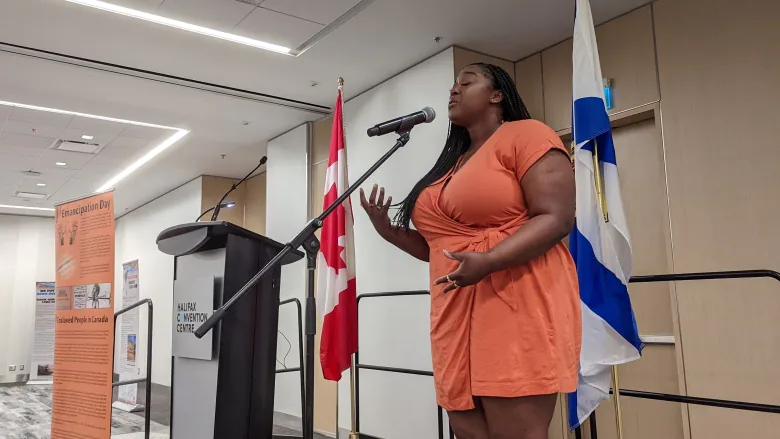Published:August 1, 2022
-CBC
Nova Scotia marked Emancipation Day for the second time with a ceremony in Halifax on Monday that included speeches and musical performances.
Aug. 1 is the anniversary of the day in 1834 when slavery was abolished in the British Empire by the Slavery Abolition Act. The federal and Nova Scotia governments voted last year to recognize Emancipation Day.
“Today, we can celebrate our strength and determination to overcome this adversity. It’s also a time of remembrance for the pain and struggle that was endured through the practice of slavery,” said Russell Grosse, executive director of the Black Cultural Centre for Nova Scotia and one of the speakers at the event.
The federal minister of Housing, Diversity and Inclusion, Ahmed Hussen, spoke at the ceremony, as well as other politicians and Black Nova Scotian leaders.
Louise Delisle, a Black Nova Scotian elder and activist, gave the closing speech.
“The enslavement of our African ancestors was demoralizing, dehumanizing and brutal from the moment they were stolen from their homes in Africa,” said Delisle.
“They remained courageous, resolute and resilient in their fight, which is making it possible for us to be here today.”
Delisle said Emancipation Day is also about recognizing the realities of our history.
“So for those who are uncomfortable speaking about slavery, claiming it is something of the past and that, therefore, we should not dredge it up — I disagree.”
Sen. Wanda Thomas Bernard was in the audience. In an interview afterwards, she said she has mixed feelings about commemorating the day.
“Part of me is really happy to see these celebrations, these official ceremonies to mark the day. I think that’s really, really important,” she said. “But the other part of me is saying, so what’s next? What are the actions that will follow from the marking of the day?”
Thomas Bernard recently called for the government to formally apologize for slavery and make reparations to Black Canadians.
The National Black Canadians Summit wrapped up in Halifax on Sunday. The Halifax Declaration was presented with a wide range of calls to action from institutions and all levels of government.
The declaration echoed Thomas Bernard’s call for an apology and reparations.
Pat Dunn, provincial minister of African Nova Scotian Affairs, did not directly answer the CBC’s questions on what actions his government would take in the wake of the Halifax Declaration.
“We’ve been having conversations and we will continue to have ongoing conversations with regard to that,” Dunn said.




